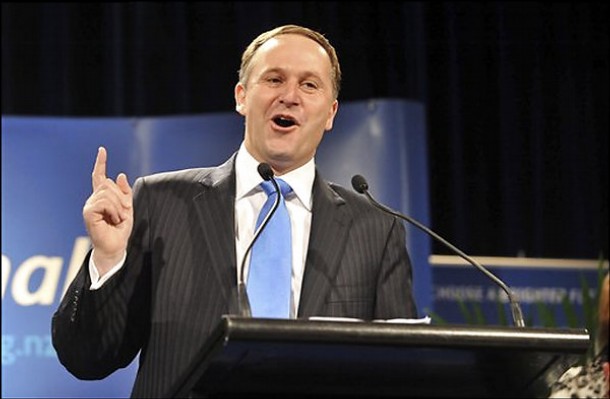The agreement also provided for access to New Zealand of temporary Chinese migrants. This is surely a precursor of much increasing focus on people movement as a component of economic integration. It also makes somewhat puzzling China’s resistance in principle at the APEC meeting in Lima in November to treating labour issues as a standard component of regional FTAs. The agreement deals with economic integration rather than a narrow meaning of ‘trade’.
New Zealand’s trade diplomacy in the West Pacific had other successes in 2008, notably the ASEAN-Australia-New Zealand FTA. But success was not limited to the West Pacific. The bilateral diplomatic relationship with the US warmed by several degrees, and in the economic sphere, culminated in the US opening negotiations with the Trans-Pacific Partnership of Brunei, Chile, New Zealand and Singapore, and attracting Australia and Vietnam into accession talks.
The importance of these developments is in the possibility that we are seeing early steps towards finding a replacement for ’rounds’ as the vehicle for multilateral economic integration now that the WTO has got too large (in membership and breadth of agenda) for its traditional processes to work. Giving reality to the concept of a ‘Free Trade Area of the Asia-Pacific’ as a medium term goal, as declared by APEC in 2007 and 2008, would be an intermediate step.
The diplomatic challenges for 2009 are high-stakes. In some quarters in ASEAN, expansion of the Trans-Pacific Partnership is seen as a challenge to ASEAN. It conflicts with an orderly progression from ASEAN economic community, to ASEAN+3 integration, to ASEAN+6 integration, and only then to Asia-Pacific integration. Furthermore, it challenges the idea that Asia-Pacific institutions should be “ASEAN-based”. Those who attach importance to this believe that if the US wishes to move now, it should do so by way of a US-ASEAN agreement and that would be consistent with a gradual move towards East Asian regionalism first.
The key decisions will probably not be in ASEAN but how the three major economies of Northeast Asia decide they want to see the East Asia region and the Asia Pacific region develop. If the China-New Zealand FTA influences on how any of the three East Asian economies view trans-Pacific partnership in 2009, it will prove to have great strategic significance.
The new New Zealand government will have to ensure that it can continue to integrate with both the Western and Eastern Pacific. It will need to retain the confidence of all of ASEAN, the major North Asian economies and the US. But it will have to deal with domestic issues too.
Fundamentally, it has to secure popular approval for giving higher priority to economic growth, without losing social cohesion through apparently retreating from commitments to subsidies for families with children and for private savings to support consumption in retirement.
Both external and internal objectives will be pursued against a background of international uncertainty. The government will be seeking to invigorate the private sector while responding intelligently todemands for more regulatory protection. The balance of collective and individual activity will be central to both domestic and international debate.
—
Gary Hawke is Fellow at the New Zealand Institute of International Economic Research, Professor Emeritus and was formerly Head of the School of Government at the Victoria University of Wellington, New Zealand.
This is part of the special feature: Reflections on developments in Asia in 2008 and the year ahead

